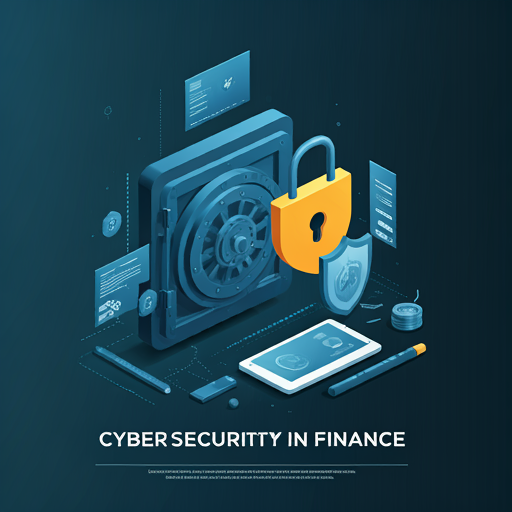Introduction to Cybersecurity in Finance
The Importance of Cybersecurity
In the financial sector, cybersecurity is paramount. It safeguards sensitive data from unauthorized access. Protecting assets is crucial for maintaining trust. Trust is the foundation of financial transactions. Cyber threats can lead to significant financial losses. This is a serious concern for investors. Robust cybersecurity measures mitigate risks effectively. Every organization must prioritize these strategies. Security is not just a technical issue; it’s a necessity.
Overview of Financial Threats
Financial threats encompass various cyber risks. These risks can severely impact institutions. For instance, data breaches compromise sensitive information. This can lead to significant financial repercussions. Additionally, phishing schemes target unsuspecting individuals. Awareness is crucial for prevention. Organizations must implement robust security protocols. Security is a top priority.
Understanding Cryptocurrency Security
How Cryptocurrencies Work
Cryptocurrencies operate on decentralized networks. These networks utilize blockchain technology for security. Each transaction is recorded in a public ledger. This transparency enhances trust among users. Additionally, cryptographic techniques protect user data. Security is vital in this digital landscape. Users must understand these mechanisms. Knowledge is power in cryptocurrency.
Common Vulnerabilities in Cryptocurrency
Cryptocurrency security is paramount due to its decentralized nature. This structure, while innovative, exposes users to various vulnerabilities. For instance, private key management is critical; losing a key can result in irreversible asset loss. It’s essential to use secure wallets. Many people overlook this. Additionally, phishing attacks remain prevalent, targeting unsuspecting users. Awareness is key. Furthermore, smart contract bugs can lead to significant financial losses. Rigorous audits are necessary. Protecting assets requires diligence and education. Always stay informed.
Types of Cyber Threats in Finance
Phishing Attacks
Phishing attacks represent a significant threat in finance. These attacks often involve deceptive emails that mimic legitimate institutions. He may unknowingly provide sensitive information. This can lead to identity theft. Additionally, spear phishing targets specific individuals, increasing the risk. Users must verify sources before responding. Always exercise caution online.
Ransomware and Malware
Ransomware and malware pose serious risks in finance. These malicious software types can encrypt critical data, demanding payment for access. He may face significant operational disruptions. Additionally, malware can steal sensitive financial information, leading to identity theft. Prevention strategies are essential for safeguarding assets. Regular updates and robust security measures are vital. Always prioritize cybersecurity.
Best Practices for Protecting Your Assets
Using Strong Passwords and Two-Factor Authentication
Using strong passwords and two-factor authentication significantly enhances security. Complex passwords deter unauthorized access effectively. He should avoid easily guessable information. Two-factor authentication adds an extra layer of protection. This method requires a second verification step. It is crucial for safeguarding sensitive data. Always prioritize security measures.
Regular Software Updates and Security Patches
Regular software updates and security patches are indispensable for protecting financial assets. These updates address vulnerabilities that cybercriminals exploit. He must ensure timely installation of patches. Neglecting updates can lead to significant risks. Key benefits include enhanced security and improved functionality. Staying current is crucial for defense. Always monitor for updates diligently.
Secure Storage Solutions for Cryptocurrency
Hot Wallets vs. Cold Wallets
Hot wallets provide convenient access to cryptocurrency for transactions. They are connected to the internet, making them user-friendly. However, this connectivity increases vulnerability to cyber threats. He should consider security risks carefully. Cold wallets, in contrast, offer enhanced security by storing assets offline. This method significantly reduces exposure to hacking. Always evaluate storage options wisely.
Choosing the Right Wallet for Your Needs
Choosing the right wallet is crucial for cryptocurrency security. He must assess his needs carrfully. Factors to consider include security, accessibility, and transaction frequency. Hot wallets offer convenience for frequent transactions. However, they carry higher risks. Cold wallets provide superior security for long-term storage. Always prioritize safety over convenience.
Regulatory Framework and Compliance
Understanding Financial Regulations
Understanding financial regulations is essential for compliance. He must navigate complex legal frameworks. These regulations ensure market integrity and protect consumers. Non-compliance can lead to severe penalties. Staying informed about changes is crucial. Regular training and updates are necessary. Always prioritize adherence to regulations.
Impact of Regulations on Cybersecurity Practices
The impact of regulations on cybersecurity practices is significant. He must comply with various legal requirements. These regulations often mandate specific security measures. Implementing these measures enhances overall data protection. Additionally, compliance reduces the risk of breaches. Organizations must regularly assess their cybersecurity frameworks. Always prioritize regulatory adherence for safety.
The Role of Blockchain in Enhancing Security
How Blockchain Technology Works
Blockchain technology enhances security through decentralization. He must understand its fundamental principles. Each transaction is recorded in a block, creating an immutable ledger. This structure prevents unauthorized alterations. Additionally, cryptographic techniques secure data integrity. Users benefit from increased transparency and trust. Always consider blockchain’s potential for secure transactions.
Benefits of Blockchain for Financial Security
Blockchain offers significant benefits for financial security. It enhances transaction transparency, reducing fraud risks. Each transaction is securely recorded and immutable. This feature builds trust among participants. Additionally, blockchain facilitates faster settlements, improving efficiency. He should consider its potential for cost reduction. Always evaluate blockchain’s role in financial systems.
Future Trends in Cybersecurity for Finance
Emerging Technologies and Their Impact
Emerging technologies significantly impact cybersecurity in finance. He must adapt to evolving threats. Artificial intelligence enhances threat detection and response. This technology improves overall security posture. Additionally, blockchain offers secure transaction methods. It reduces fraud and increases transparency. Always stay informed about technological advancements.
Preparing for Future Threats
Preparing for future threats is essential in finance. He must implement proactive security measures. Advanced persistent threats require continuous monitoring. This approach enhances overall risk management. Additionally, employee training is crucial for awareness. Cyber hygiene practices should be prioritized. Always evaluate and update security protocols.

Leave a Reply